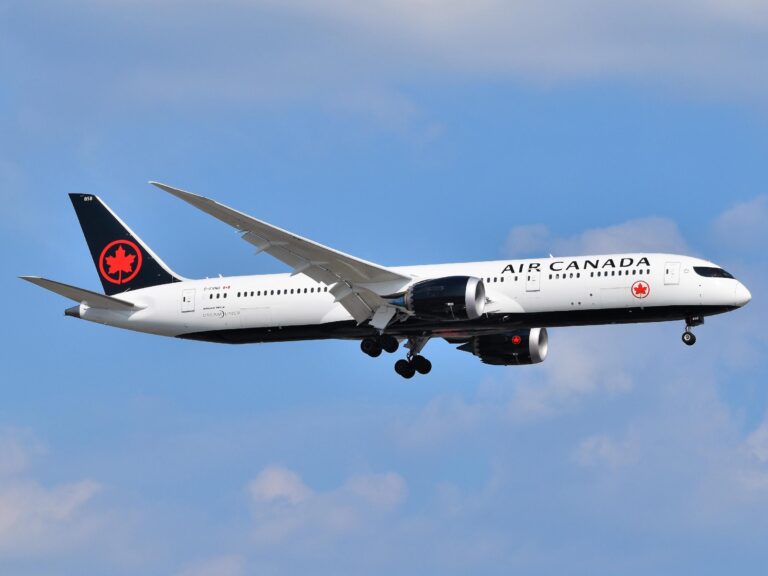Air Canada has suspended plans to resume flights after its union defied a federal back-to-work order, escalating tensions in the ongoing labor dispute. The airline’s move comes amid growing uncertainty for travelers and significant disruption to schedules, highlighting the challenges of resolving the standoff between the carrier and its employees. The situation remains fluid as negotiations continue and government authorities weigh in to restore operations.
Air Canada Suspends Flight Restarts Amid Ongoing Union Defiance
Air Canada has abruptly paused its planned flight restarts as union members continue to resist a federally mandated back-to-work order. The airline, which had been gearing up to resume limited services following months of labor disruptions, cited ongoing defiance from unionized workers as the primary obstacle preventing a smooth transition back to normal operations. Management expressed frustration over the lack of cooperation, emphasizing that the safety of passengers and staff remains their top priority despite the complications.
The persistent refusal from union members has forced Air Canada to revise its operational timeline indefinitely. Industry experts warn that prolonged unrest could ripple through Canada’s travel sector, potentially causing cascading delays and cancellations nationwide. Below is a summary of the current situation:
| Aspect | Status |
|---|---|
| Flight Restart Date | Indefinite Postponement |
| Union Compliance | Ongoing Defiance |
| Passenger Impact | Widespread Delays/Cancellations |
| Government Involvement | Back-to-Work Order Enforced |
- Management stance: Prioritizing safety and operational stability.
- Union position: Questioning fairness of imposed work conditions.
- Outlook: Negotiations remain critical to ending the stalemate.
Union Challenges Government Back-to-Work Order Escalate Operational Disruptions
Labor tensions have escalated sharply following the union’s defiance of the government’s back-to-work order. Air Canada was forced to halt its ambitious flight restart plans as workers maintained their refusal to return to duties amid ongoing disputes over contract terms and working conditions. The airline now faces mounting operational disruptions, with hundreds of flights canceled and thousands of passengers affected nationwide.
The ripple effects are being felt across multiple areas, including:
- Delays in luggage handling and ground services causing longer turnaround times at airports
- Reduced staffing levels creating bottlenecks in customer service and check-in counters
- Uncertainty among travelers impacting bookings and future scheduling
| Impact Area | Status | Estimated Recovery Time |
|---|---|---|
| Flight Operations | Paused | Indefinite |
| Ground Services | Limited | 1-2 weeks |
| Customer Support | Overloaded | 3-5 days |
Strategies for Negotiating Labor Disputes to Ensure Timely Resumption of Services
In navigating labor disputes, especially in critical industries like aviation, companies must adopt a multi-faceted approach to swiftly mitigate service disruptions. Open communication channels between management and unions are essential to address grievances before escalation. Proactive engagement can involve:
- Regular negotiation meetings focused on transparency and trust-building
- Involving neutral mediators to facilitate constructive dialogue
- Establishing contingency plans that consider employee concerns while safeguarding operational continuity
The application of these strategies can significantly reduce the time lost in work stoppages. For example, a clearly defined framework for responding to back-to-work orders can provide guidelines ensuring compliance while respecting union rights. Below is a brief outline contrasting effective vs. ineffective negotiation tactics often observed during labor disputes:
| Effective Tactics | Ineffective Tactics |
|---|---|
| Listening actively to union demands | Ignoring employee concerns |
| Offering transparent timelines for agreement implementation | Using vague or ambiguous negotiation terms |
| Facilitating third-party mediation | Relying solely on legal threats or back-to-work orders |
In Summary
As the standoff between Air Canada and its striking workers continues, the suspension of the airline’s flight restart underscores the ongoing challenges facing Canada’s transportation sector. With labor negotiations at an impasse and legal orders defied, passengers and industry stakeholders alike remain uncertain about when normal operations will resume. Both sides have yet to signal a clear path forward, leaving the aviation industry bracing for prolonged disruptions.




